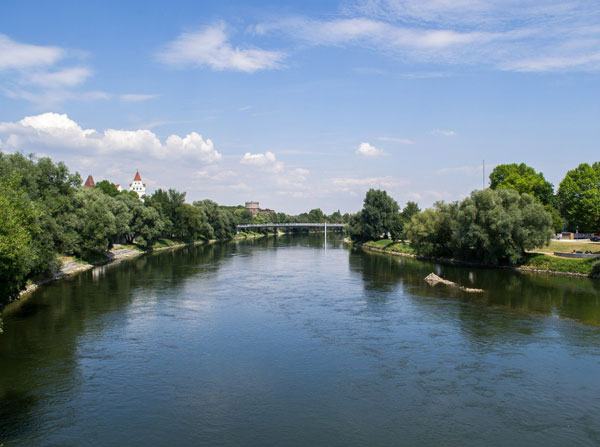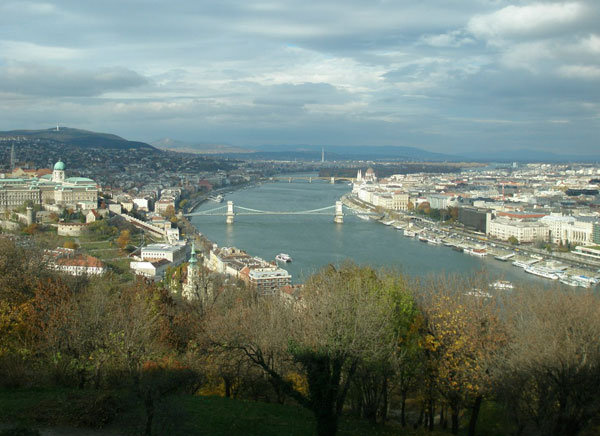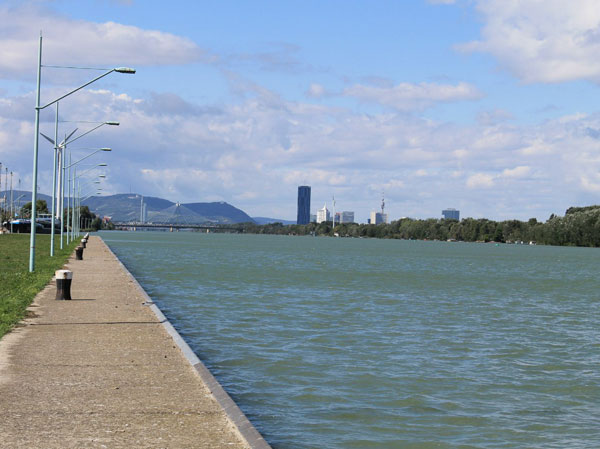The Danube (/ˈdænjuːb/ DAN-ewb, known by various names in other languages) is Europe's second-longest river, after the Volga River. It is located in Central and Eastern Europe.
The Danube was once a long-standing frontier of the Roman Empire, and today flows through 10 countries, more than any other river in the world. Originating in Germany, the Danube flows southeast for 2,860 km (1,780 mi), passing through or touching the border of Austria, Slovakia, Hungary, Croatia, Serbia, Romania, Bulgaria, Moldova and Ukraine before emptying into the Black Sea. Its drainage basin extends into nine more countries. The Danube river basin is the most biodiverse region in Europe, and is home to hundreds of fish species, such as pike, Zander, huchen, wels catfish, burbot and tench. It is also home to a large diversity of carp, sturgeon, and salmon/trout. A few species of Euryhaline fish, such as European seabass, mullet, and eel, inhabit the Danube delta and the lower portion of the river.












